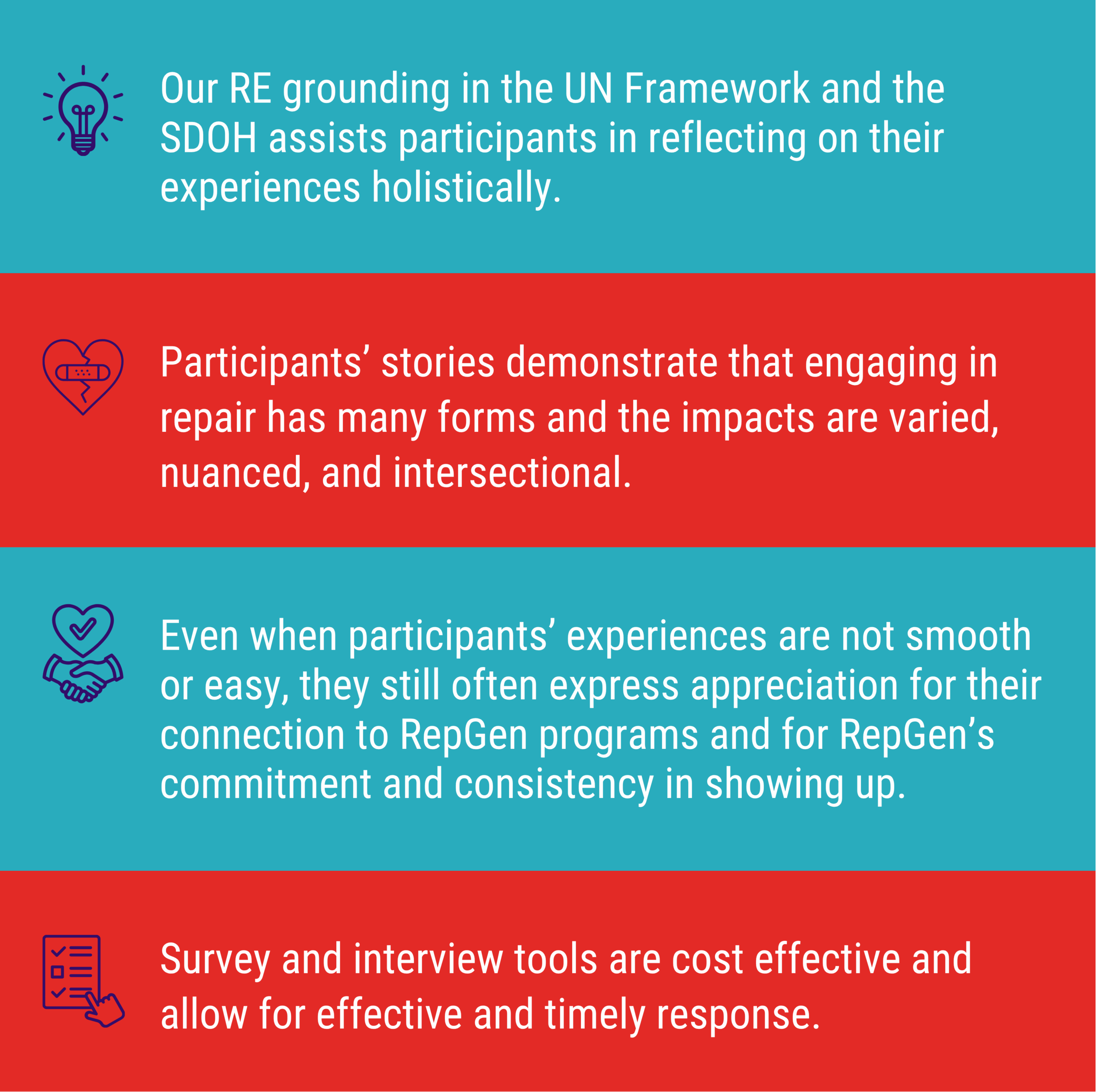Grounded in the United Nations Reparations Framework and Social Determinants of Health (SDOH), we center the voices of program participants, contributors, and supporters using qualitative and quantitative data to systematically:
RepGen applies evaluation to its programs in ways that refine our collective understanding of which data most advances the Reparations Movement. By deepening and broadening the understanding of what healing and repair look and feel like from the perspective of the harmed and those who have caused harm, we strengthen public opinion and legislative initiatives by demonstrating the efficacy of reparative acts. Moreover, by staying in touch with movement partners and policy makers, we ensure that the framework is evolving with the needs of the movement.
Recently, with financial support from The Robert Wood Johnson Foundation, RepGen is facilitating a Reparative Evaluation Community of Practice (RECOP). The RECOP is bringing together reparative program practitioners, participants, evaluation experts, and movement leaders to co-create a reparative evaluation framework that leverages existing research and builds new methodologies that are explicitly reparative, participatory, and actionable. This framework will assist with the collection and analysis of the impacts of reparative programs across the U.S. while also increasing our shared understanding of what healing and repair look like for individuals and families.
Reparative Evaluation was uniquely designed by RepGen. Our Black founders set out to create Reparations in Action models that build intergenerational wealth and help heal harm for Black People in the U.S. To date, no standardized inventory of indicators, questions, or scales exists for measuring reparative impacts. In response, RepGen launched customized evaluation tools in 2021, centering participants as co-creators and co-learners.
RepGen uses surveys, interviews, and follow-up conversations to evaluate program impact. By combining quantitative and qualitative methods, such as thematic analysis and data triangulation, we capture nuanced participant experiences. When possible, we supplement individual data with relevant community-level data. This mixed-method approach enables real-time feedback, iterative improvements, and robust assessment of program effectiveness.
Findings and recommendations inform program updates and are shared publicly through newsletters, social media, our website, impact reports, house meetings, and events. They also reach policymakers and reparations leaders to advance more reparative programs and strengthen the case for a comprehensive federal Reparations Program.

RepGen intends to explore additional cost-effective, advanced tools to optimize participant engagement and ensure our evaluations remain comprehensive, accurate, and relevant.
This may include:
a) Design thinking and reflexive engagement feedback.
b) Machine summarization and analysis of data.
c) Publication and/or other media dissemination of organizational learnings.
d) The creation of a standard definition of a reparative program.
e) Development of an evaluation framework that is explicitly reparative and not extractive.
Sign up for updates via the RepGen Newsletter or contribute today.